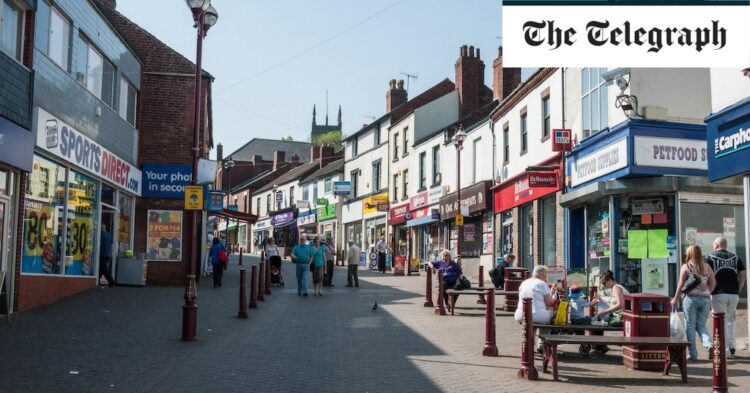Adding to a growing body of evidence, Sapien Labs identifies a link – not just in the UK, but globally – between poor mental wellbeing and the pervasiveness of smartphones and online comms. That young people are noted to have suffered the biggest drop in mental wellbeing appears to add heft to their argument. Ditto the fact that lower-tech countries, such as Sri Lanka and Tanzania, are among those recording better wellbeing scores. Stronger family ties in those nations were also linked to better mental health.
The internet has a lot to answer for, then. It has, of course, facilitated the home-working phenomenon that hushed our cities post-Covid. It sent dating and retail online, fanned the culture wars, and distracted us, research shows, from having sex. No wonder we’re glum. Has it also robbed us of a soundtrack for these weird times? In the moribund early nineties, there was at least a musical movement to lift the nation. Scant chance of a unifying Britpop 2.0 in the streaming age, with its fragmented, fickle audiences. No wonder we’re in the midst of misty-eyed 1990s nostalgia – when mullets are back, you know you’re in trouble.
“Everything’s online now, the shops have closed.” It’s a lament I’ve heard repeatedly on my travels across the land for this newspaper. Our sense of place, it seems, has gone. We are adrift in the digital ether. Lost and lonely in our screens. Barraged by bad news.
Perhaps that’s too convenient a narrative. Like the Mental State of the World report, it tells only part of the story. Another narrative is of resilient communities across the UK, which, like Ilkeston, have stepped up to start newspapers where theirs have folded, grow food in communal spaces, and even take over post offices.
They have united, too, to save our cherished pubs, bringing these community hubs into the hands of the people who use them. The UK has lost six per cent of its pubs in the last six years – reason enough to be glum – according to the British Beer & Pub Association. In that same period the number of community-owned pubs has soared by 63 per cent. My local, the Ivy House in Nunhead, a lynchpin of our neighbourhood, was London’s first, but not its last. Even Britain’s most remote village, Inverie, has dug deep enough to save its local, The Old Forge, which is reached only by hiking 17 miles or taking a ferry.
Bright spots amid the gloom. So, where next for beleaguered Brits? A fact-finding mission to the Dominican Republic? It topped the mental wellbeing index, perhaps it has tips. Alternatively, as one Ilkeston resident sagely suggested, how about summoning that much-vaunted Dunkirk spirit of ours and taking positive action? “Better to light a candle than curse the darkness.” Someone pass the matches.
Five cheery places to visit in the UK1. Richmond-on-Thames, London
London, ground zero for misery, right? Err, no. In fact, for the first time, a suburb in the capital has topped Rightmove’s annual Happy at Home index, which asks people how they feel about their area. Straddling the Thames and sandwiched between Richmond Park and Kew Gardens, it’s no surprise that access to nature elevated Richmond’s score. Residents also cited a strong sense of belonging and thriving independent shops as reasons for loving the place.
Source link : https://www.telegraph.co.uk/travel/destinations/europe/united-kingdom/mental-wellness-index-uk-miserable-nation/
Author :
Publish date : 2024-03-08 03:00:00
Copyright for syndicated content belongs to the linked Source.
